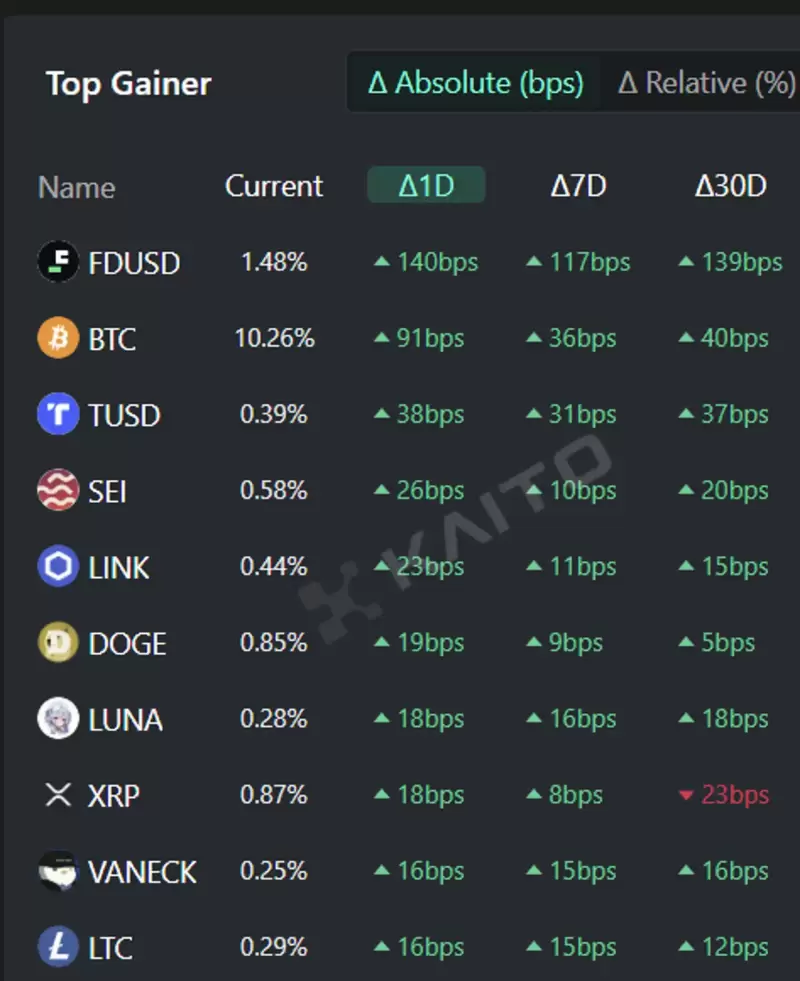 |
|
 |
|
 |
|
 |
|
 |
|
 |
|
 |
|
 |
|
 |
|
 |
|
 |
|
 |
|
 |
|
 |
|
 |
|
加密货币新闻
India’s Digital Asset Exchanges May Consolidate in 2025 as Smaller Exchanges Shut Down or Merge with Larger Ones
2025/01/08 14:00

India’s digital asset exchanges are likely setting themselves up for a consolidation in 2025, with smaller exchanges either shutting down operations or merging with larger ones due to the country’s punishing taxation regime.
The government has long treated digital assets with suspicion, to the extent of imposing one of the harshest taxation in 2022—30% flat tax on all digital currency income with no provision to offset losses and a 1% tax deducted at source (TDS) on all transactions above Rs 10,000 ($118). This may likely lead to a loss of about $1.2 trillion in trade volume on domestic exchanges over the years, a study from Esya Centre, an Indian policy think tank, claimed.
Seychelles-headquartered OKX, the second-largest global digital asset exchange by trading volume, shut down its India operations in 2024, citing regulatory hurdles. Domestic exchanges, however, have been increasingly complying with new regulatory demands. At the same time, exchanges have been requesting the government to establish a level playing field for virtual digital assets (VDAs). The requests include reducing TDS from 1% to 0.01%, allowing offsetting and carrying forward losses, and treating income from digital assets at par with other capital assets.
“Crypto taxes being high is one issue, but the main drawback and the most concerning aspect is that there is no provision to offset losses. This is extremely unfair, especially for small investors,” said Avinash Shekhar, co-founder and chief executive of Pi42, a digital currency derivatives platform.
“While this issue might have a minimal impact during a bull market with growing trading volumes, the real concern arises during a bear market. Without the ability to offset losses, traders would need to take money out of their own pockets to pay taxes, even if they are in an overall loss. This discourages crypto traders and could lead to a decline in trading activity, ultimately reducing trading volumes on exchanges. This will discourage startups, and it is against ‘Make in India.’ This situation poses a serious problem,” Shekhar told CoinGeek.
“As many countries are endorsing crypto and implementing crypto-friendly regulations, we urge the Indian government, on behalf of everyday crypto traders and investors, to at least introduce the option to offset losses,” Shekhar added.
But the requests have so far fallen on deaf ears. While the economy is looking to regulate the digital assets space, Finance Minister Nirmala Sitharaman said in March that ‘cryptocurrencies’ cannot be a legal currency in India.
Moreover, in December, India informed that there is no fixed timeline for introducing comprehensive regulatory guidelines for VDAs in the country. As a result, the legal status of digital currency continues to be in limbo, with no specific legislation governing digital currency-based businesses in the country.
Pointing out that high-volume and innovative exchanges may still weather the storm, Amit Kumar Gupta, a legal practitioner at the Supreme Court of India, told CoinGeek that such exchanges will likely adapt to niche markets and leverage scale to stay afloat. Despite industry appeals for tax relief, no policy changes are anticipated, leaving exchanges to navigate a challenging regulatory environment while advocating for long-term reforms.
“In 2025, we can expect to see intensified consolidation as dominant players acquire smaller exchanges to expand user bases and streamline compliance with stringent regulations,” Gupta said. “Successful exchanges will prioritize innovative offerings like tokenized assets, cross-border solutions, and staking services to attract users and maintain profitability.”
According to a September 2024 report by Chainalysis, India is the world leader in digital asset adoption, holding its position at the top of global rankings for the second consecutive year.
The nation’s growing interest in digital currencies is driven by a desire for financial inclusion and a distrust in traditional banking systems, according to Statista.
Uday Kotak, the founder of India’s third-largest private bank, Kotak Mahindra, labeled digital currency as an “alternate market currency” and a necessary counter hedge for governments worldwide who misbehave and are irresponsible on the fiscal or monetary side over long periods.
“With India maintaining its stringent crypto taxation policies, consolidation in the exchange sector seems inevitable. Smaller exchanges struggling with low margins may seek mergers or acquisitions to stay afloat,” said Rohan Sharan, founder and chief executive of Timechain Labs, an on-chain application development firm utilizing BSV blockchain technology.
“We may witness a few high-volume exchanges dominating the market while others shut down due to regulatory pressure and declining user engagement. Unless the government revises taxation or introduces progressive regulations, innovation in the crypto exchange space may stall. However, blockchain utility platforms offering services beyond just trading may thrive amidst these challenges,” Sharan told CoinGeek.
Sharan, for instance, is looking to tokenize real-world assets (RWAs) like mutual funds instead of focusing on digital currencies. According to him, most payment aggreg
免责声明:info@kdj.com
所提供的信息并非交易建议。根据本文提供的信息进行的任何投资,kdj.com不承担任何责任。加密货币具有高波动性,强烈建议您深入研究后,谨慎投资!
如您认为本网站上使用的内容侵犯了您的版权,请立即联系我们(info@kdj.com),我们将及时删除。
-

-

- 失去关键支持水平后,Pepe(Mind)价格下跌超过15%
- 2025-04-03 15:50:12
- PEPE价格在每周的时间范围内下跌超过16%,此前24小时下跌5%,价格为$ 0.000007173
-

-

-

-

- Dogecoin(Doge)价格预测:一位分析师强调了看涨的分歧,表明可能会有集会
- 2025-04-03 15:40:13
- 一位分析师强调了对Dogecoin的看涨分歧,这表明交易者应该专注于数字而不是新闻。
-

- XRP导航挥发性水域,针对其范围的突破
- 2025-04-03 15:35:27
- Ripple的XRP正在贯穿一个动荡的阶段,随着更广泛的加密市场经历的湍流,努力保持至关重要的支持水平。
-

-





























































